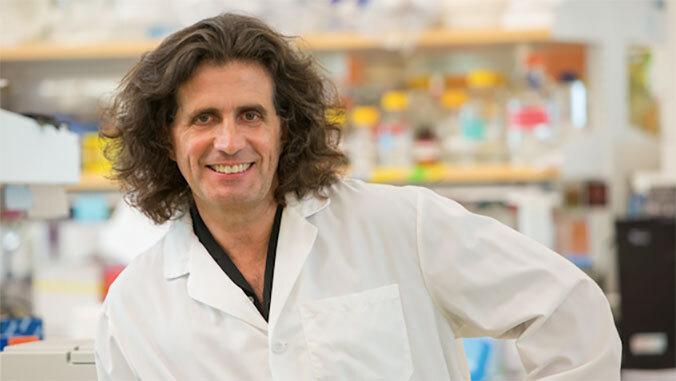
Credit: UH Cancer Center
A new study led by the University of Hawai?i Cancer Center looks into how and why certain individuals develop cancer and others do not. The research was published in Nature Reviews Cancer, one of the most influential and prestigious journals in medicine and science. In addition to lead author Michele Carbone and co-author Haining Yang, collaborators include top cancer researchers, including a Nobel Laureate, and several members of the U.S. and European Academy of Sciences.
In the publication, “Tumour predisposition and cancer syndromes as models to study gene-environment interactions,” Carbone and collaborators discuss recent evidence indicating that cancer most often results from the interaction between an individual’s genetics and exposure to environmental carcinogens. They emphasize that the risk of developing cancer upon exposure to carcinogens varies due to gene mutations that can make certain individuals much more susceptible than others.
“By identifying those who carry genetic mutations, we can implement more effective prevention and early detection strategies targeting those who are most vulnerable, and thus, we have a much greater impact in saving lives from cancer,” said Carbone.
This is the first time that the role of gene-environment interaction in cancer is being discussed at this level of molecular detail by some of the top scientists in the world. Several of the advancements in this field of research were made possible by Carbone and collaborators’ discovery of the “BAP1 cancer syndrome,” a disease that allows researchers to study and elucidate the mechanisms that regulate gene-environment interaction in causing cancer.
“This important ‘Perspective’ article highlights some of the most cutting-edge studies on how genes and environmental factors interact in causing cancer, which is a critical research topic that needs people’s attention,” said Yang.
“This comprehensive publication was made possible thanks to the support of Barry and Virginia Weinman of the Weinman Foundation, who have played a very significant role in advancing innovations in cancer research,” said Carbone. “The Weinmans generously funded meetings at the UH Cancer Center, allowing the co-authors to meet and discuss the topic at hand. As revealed by this publication, their contributions continue to tremendously impact and enhance cancer research, not only in the state of Hawai’i, but nationally and internationally as well.”
###
The University of Hawai?i Cancer Center through its various activities, including scientific research and clinical trials, adds more than $54 million to the O?ahu economy. It is one of only 71 research institutions designated by the National Cancer Institute. Affiliated with the University of Hawai?i at Mānoa, the Center is dedicated to eliminating cancer through research, education, patient care and community outreach with an emphasis on the unique ethnic, cultural, and environmental characteristics of Hawai?i and the Pacific. Learn more at uhcancercenter.org. Like us on Facebook at facebook.com/UHCancerCenter. Follow us on Twitter @UHCancerCenter.
Media Contact
Laura Young
[email protected]
Original Source
http://manoa.
Related Journal Article
http://dx.




